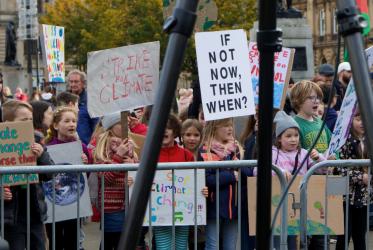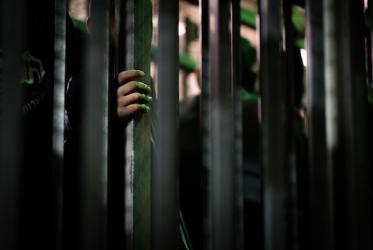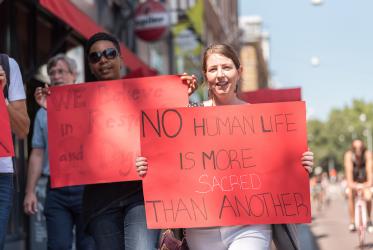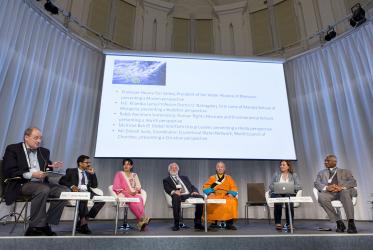Displaying 1 - 15 of 15
WCC Eco-School begins in Crete
15 November 2023
WCC executive committee tackles public issues
07 November 2018
WCC supports UN petition from French Polynesia
07 November 2018
G20 summit: call to pray for peace in Hamburg
07 July 2017
WCC Blue Community implements water changes in the Ecumenical Centre
16 February 2017
WCC convenes strategic meeting on sustainable development goals
11 February 2016
COP21: how climate change affects access to our daily bread
09 December 2015










